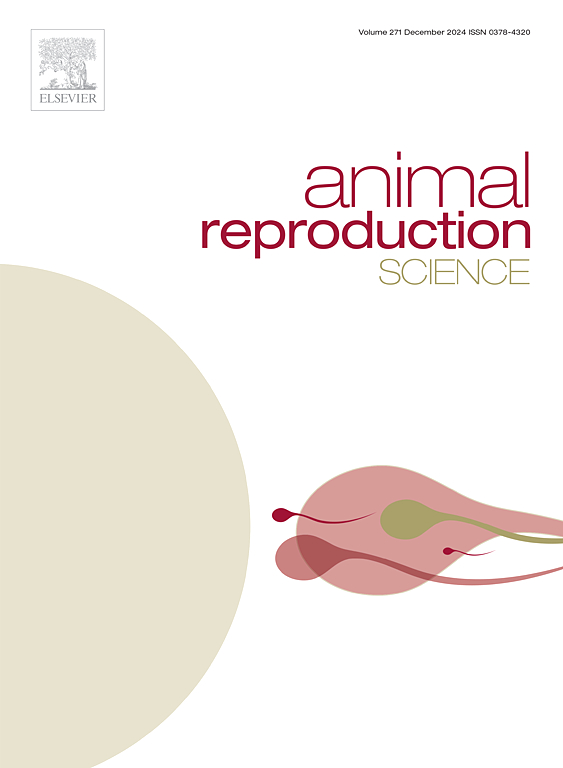Omics approaches to understand impact of heat stress on semen quality and fertility in bovines
IF 2.2
2区 农林科学
Q1 AGRICULTURE, DAIRY & ANIMAL SCIENCE
引用次数: 0
Abstract
Recent surge in global climate change poses unprecedented challenges to traditional livestock breeding methods. In tropical countries, where large bovines are vital source of meat and milk, the escalating global warming significantly impact their productivity. Central to this challenge is the resilient ability of the animals, which directly influences the productivity. Artificial insemination (AI) programs, a cornerstone in modern livestock production, have also been severely hampered by climate change-induced heat stress, affecting the quality semen production. This stress not only affects the blood biochemical profiles of the animals but also their testicular physiology, leading to the issues such as low-quality semen with compromised freezability and fertility. Researchers have identified specific markers, including single nucleotide polymorphisms (SNPs), copy number variations (CNV), and epigenetic signatures like histone modifications, DNA methylation, and noncoding RNAs, influencing the semen quality in livestock species. Furthermore, the issue of heat stress has been addressed in a very precise way, and biomarkers have been identified, which can be integrated into the breeding programme to keep up the sire summary. Transcriptomic studies have further illuminated the temporal expression patterns of genes related to sperm quality during heat stress, pinpointing candidate genes for further exploration. This review comprehensively summarizes the progress made in understanding the intricacies of sperm biology in bovines, with a specific focus on cattle and buffalo delving into a spectrum of changes, from biochemical shifts to profound cellular alterations, including genomic, transcriptomic, and epigenetic modifications.
求助全文
约1分钟内获得全文
求助全文
来源期刊

Animal Reproduction Science
农林科学-奶制品与动物科学
CiteScore
4.50
自引率
9.10%
发文量
136
审稿时长
54 days
期刊介绍:
Animal Reproduction Science publishes results from studies relating to reproduction and fertility in animals. This includes both fundamental research and applied studies, including management practices that increase our understanding of the biology and manipulation of reproduction. Manuscripts should go into depth in the mechanisms involved in the research reported, rather than a give a mere description of findings. The focus is on animals that are useful to humans including food- and fibre-producing; companion/recreational; captive; and endangered species including zoo animals, but excluding laboratory animals unless the results of the study provide new information that impacts the basic understanding of the biology or manipulation of reproduction.
The journal''s scope includes the study of reproductive physiology and endocrinology, reproductive cycles, natural and artificial control of reproduction, preservation and use of gametes and embryos, pregnancy and parturition, infertility and sterility, diagnostic and therapeutic techniques.
The Editorial Board of Animal Reproduction Science has decided not to publish papers in which there is an exclusive examination of the in vitro development of oocytes and embryos; however, there will be consideration of papers that include in vitro studies where the source of the oocytes and/or development of the embryos beyond the blastocyst stage is part of the experimental design.
 求助内容:
求助内容: 应助结果提醒方式:
应助结果提醒方式:


